Alfa Spider 2004
Buyer's guide: Alfa Romeo Spider (916)
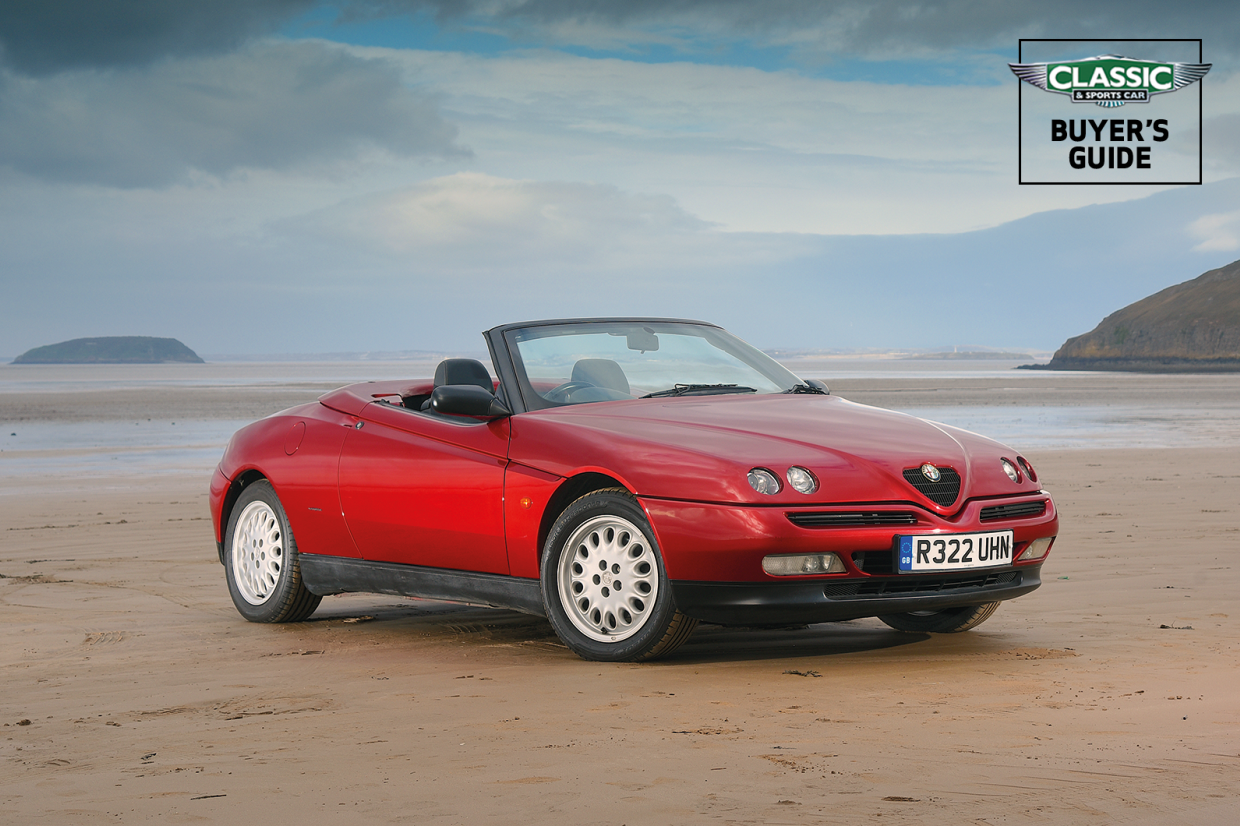
Why you'd want an Alfa Romeo Spider (916)
Designed in the late 1980s by Enrico Fumia at Pininfarina, the 916 Spider had a tough act to follow.
It addressed the challenge with a dramatic side-slash and huge front clamshell cleverly shrouding the headlights, while a hard cover for the folded soft-top gave it an exceptionally clean wedge profile.
Along with its sister GTV, which had a stiffer bodyshell, it won numerous awards in 1995. Based on the same Fiat floorpan as the Alfa 155, but with all-new multi-link suspension, it abandoned rear drive and offered serious performance in 3-litre V6 form, or decent performance, sharp handling and relaxed usability as a 2-litre four-cylinder.
'Pretty, fun to drive and a worthy successor to the Duetto,' said Autocar of the new Spider when testers finally got their hands on a grey-import 2.0 left-hand-drive version in mid-1995. 'Twin camshafts, twin balancer shafts, variable valve timing and four valves per cylinder combine to produce 150 of the smoothest, most melodic horses available from any four-pot manufacturer in the world,' it enthused. It might have added the twin spark-plugs as well, of course…
The car's character and panache are key to its appeal, rather than out-and-out performance. At least in 2.0 form, it's not in the hot-hatch league in terms of performance and scuttle shake can take the edge off its otherwise impressive handling when the going gets rough.
Worldwide there were multiple engine specs and options, from 1.8-litre four-cylinder and 2.0 turbocharged V6 to 24-valve 3.2 V6. Some were only for specific markets, while others were introduced later in right-hand-drive form than they were in left.
In the UK, the 2.0 was offered in two different specs: the more basic Turismo, which could still be specified with extras such as leather trim; and the Lusso, which would normally come with a power hood, full leather trim, optional Momo seats and iridescent paint. The V6 3.0 and 3.2 were sold in Britain, along with the last-of-the-line JTS direct-injection 2.0, but they are few and far between; the vast majority of 916 Spiders are 2.0 Twin Sparks.
Rust worries were largely put to rest by galvanising the entire bodyshell, which no doubt contributed to making the car excessively heavy and therefore not particularly accelerative in its class – especially the 2.0. But it's a small price to pay to avoid the rampant rot of most older Alfas.
Images: Will Williams
Alfa Romeo Spider (916): what to look for
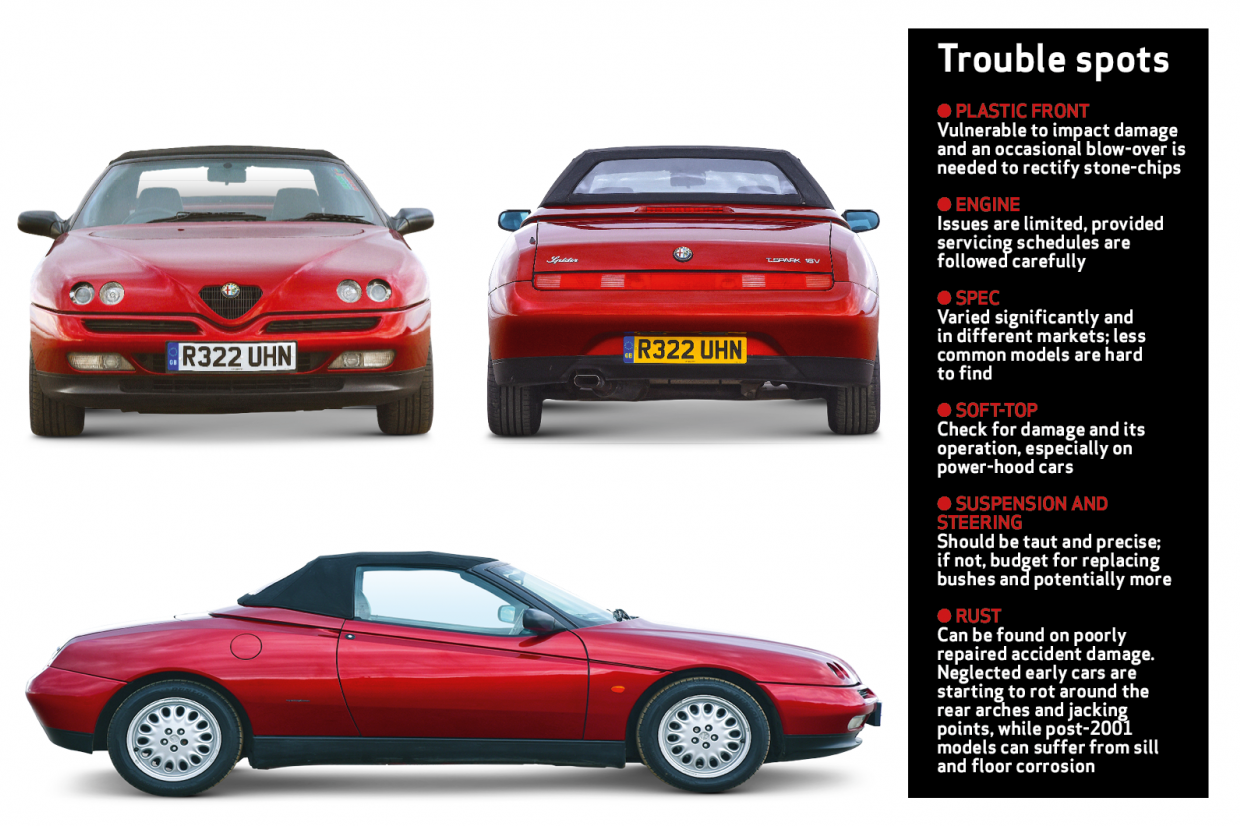
Super-quick steering and state-of-the-art wheel location make driving the Spider great fun, but importantly it's also a very easy and relaxing car to drive, at least in Twin Spark form. The V6 is more of an animal, with a fantastic soundtrack and huge torque, but also a significant thirst and torque-steer
Bodywork
See above for trouble spots
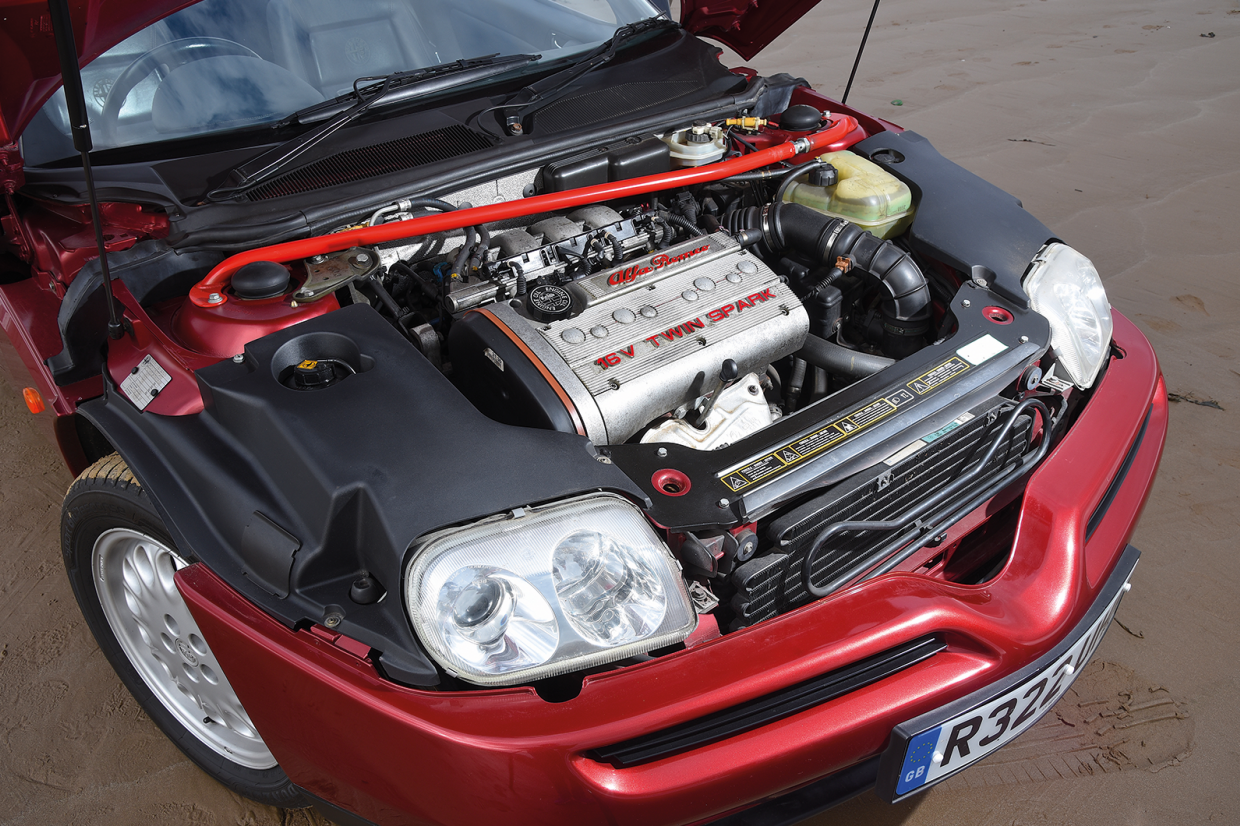
Engine
The Fiat-derived Twin Spark engine is long-lived if well maintained. Listen for a rattly cam variator (£125 plus fitting) and check the dipstick to ensure the oil is not too old and is topped up: low oil wrecks engines. The cambelt should be replaced every 36,000 miles or three years, so check the service history.
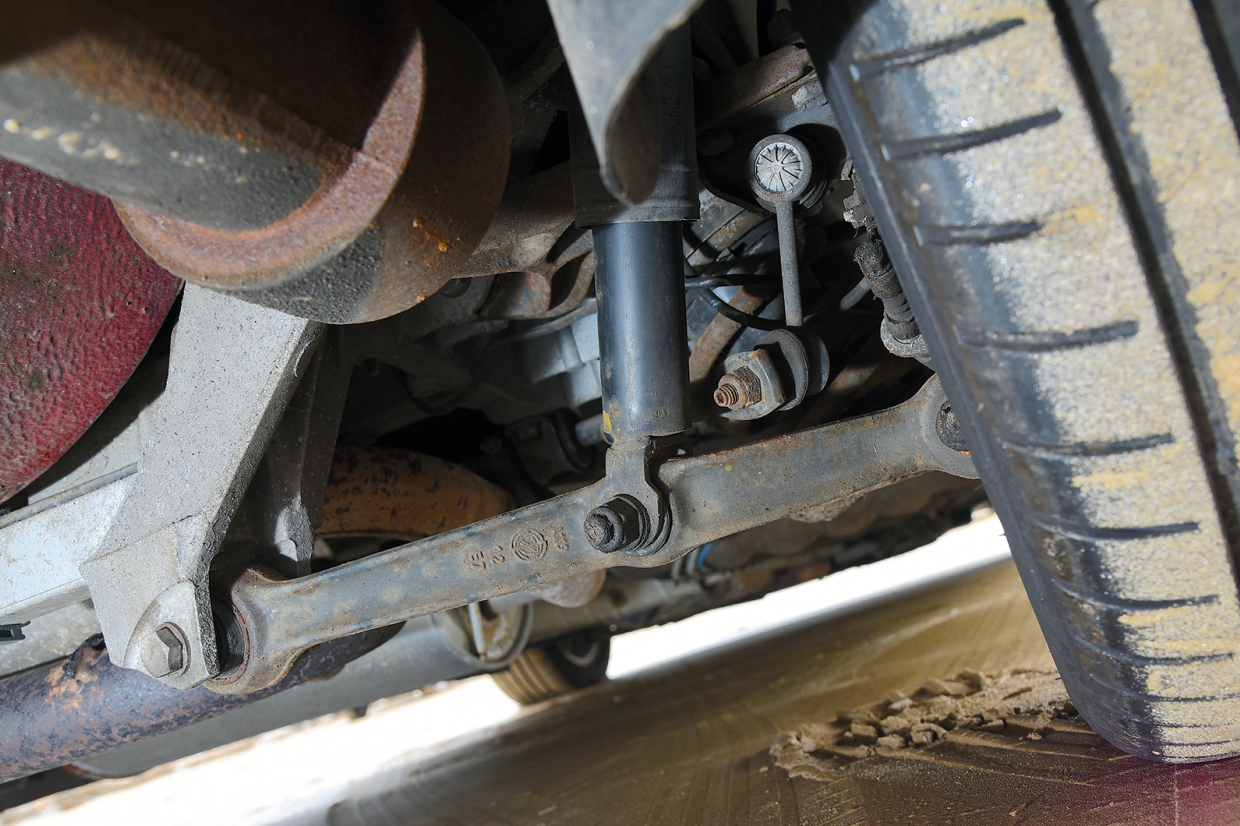
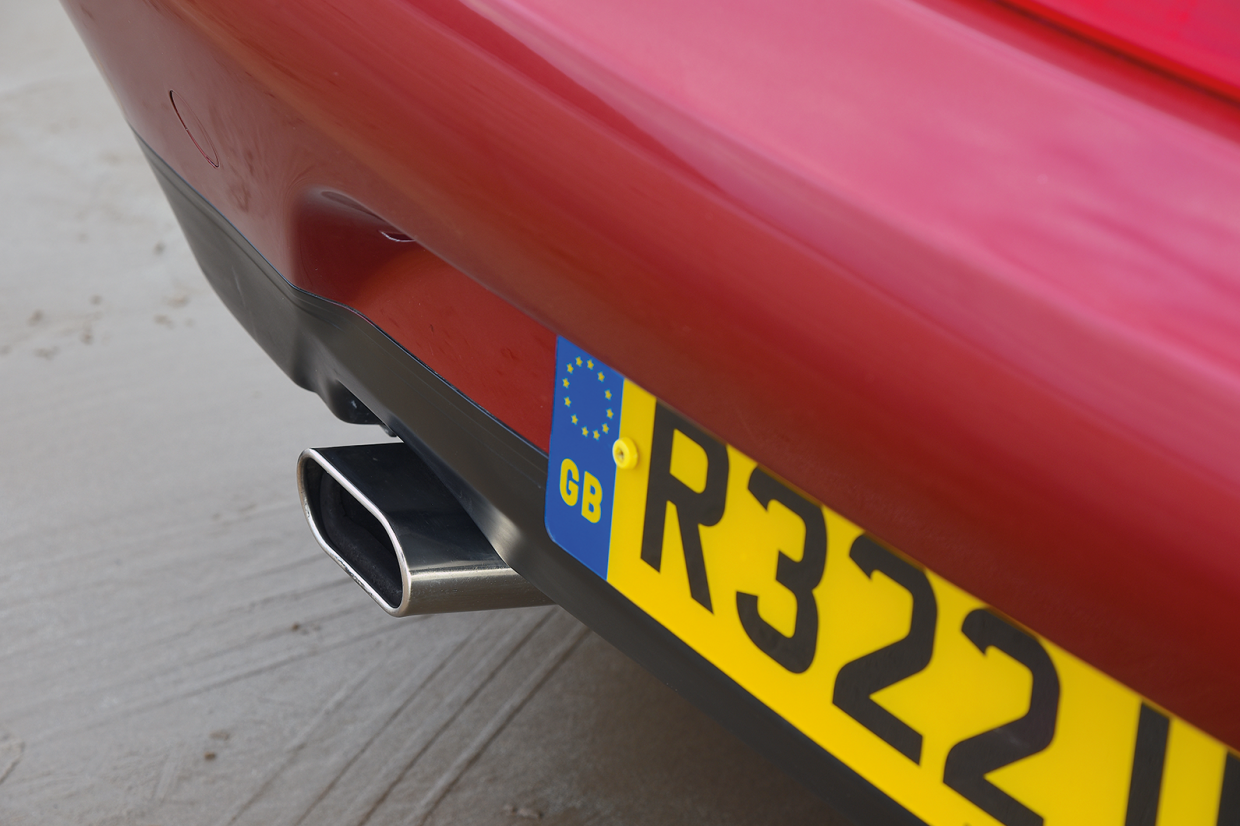
Suspension
Multi-link suspension that has lost its sharpness will need re-bushing – if it's clonking, it may have damaged the subframe, so check carefully.
Exhaust
Oval exhaust denotes an original; aftermarket exhausts are round or twin. Original ones will be nearing the end of their life now (budget £300+).
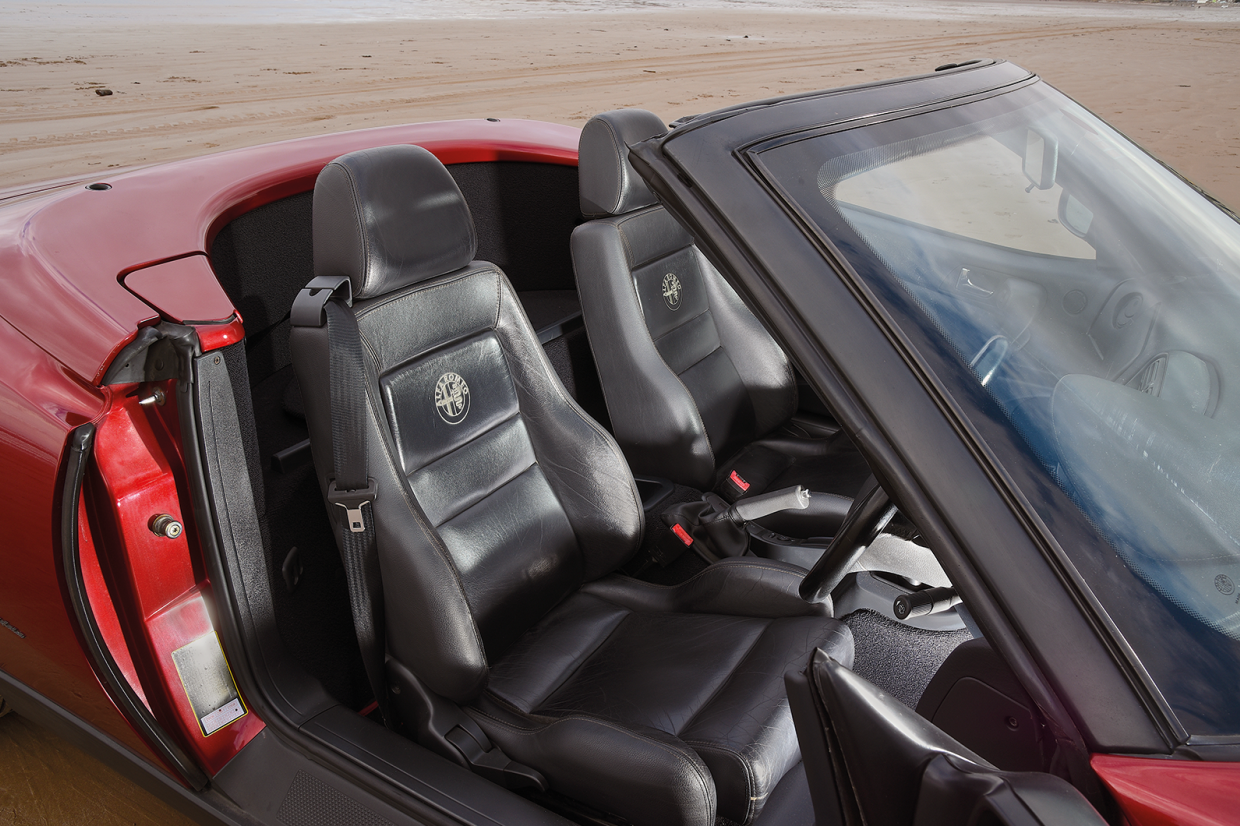
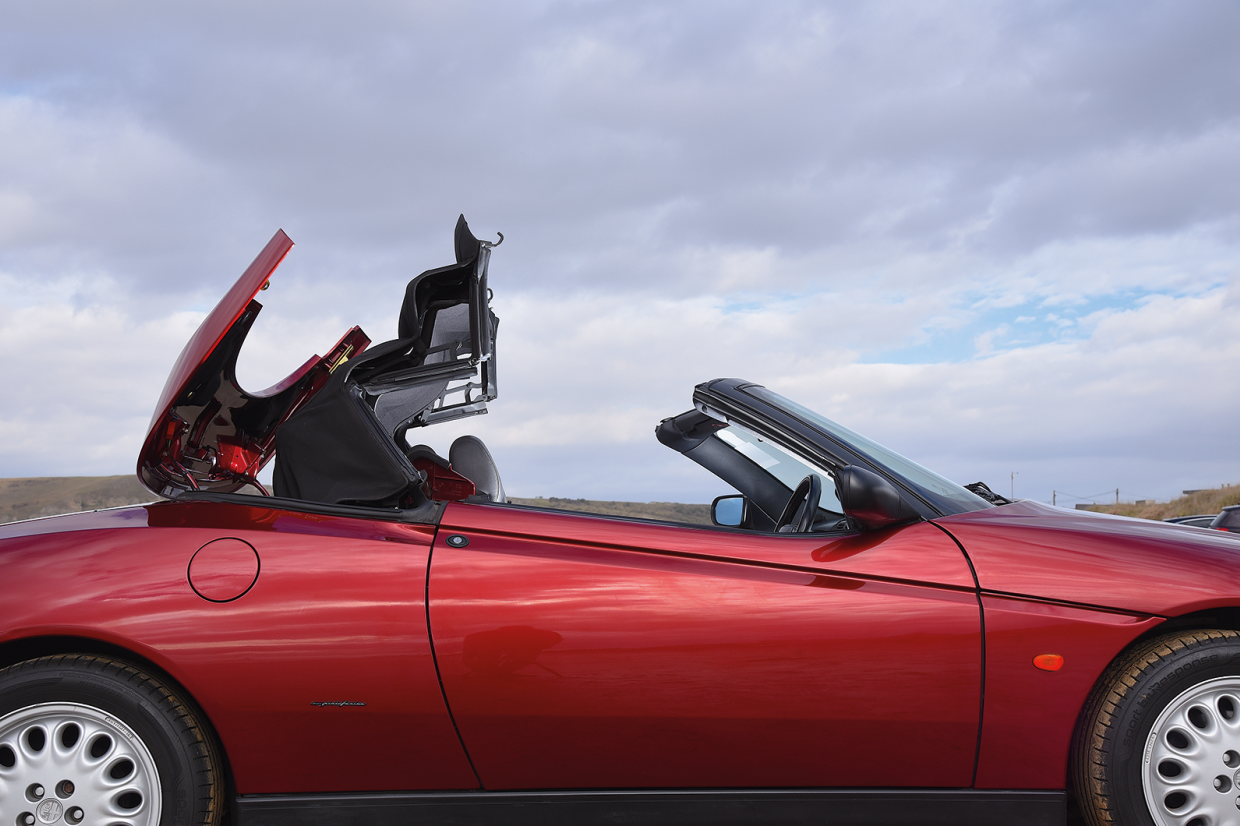
Interior
Trim came in a range of specs; mostly full leather. Check bolster wear, seat function, and for damp floors. Centre console and doorhandles go sticky.
Hood
Most Spiders had a power hood; early manual ones have fewer problems. Check full operation: rams leak, locking motors fail. Parts are scarce.
Alfa Romeo Spider (916): on the road
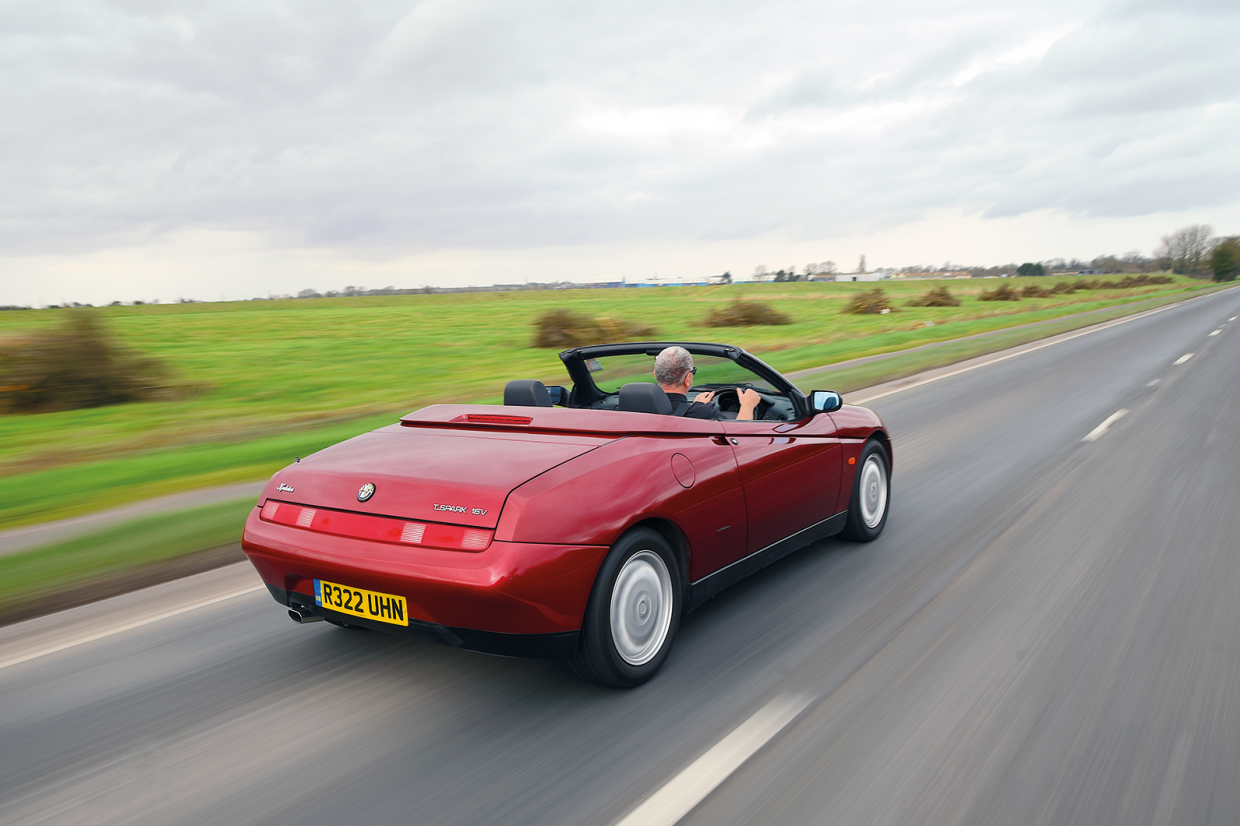
Apart from the need for frequent timing-belt changes (£150-200 for the kit with tensioner and water pump), and the occasional rattly cam variator, the basic Twin Spark engine is a sturdy unit.
Problems mostly derive from electronic components such as the mass-airflow sensor (reduced power) and the idle-control motor (hunting at tickover). They do use oil and must be kept topped up, though, so listen for a telltale rattle – an engine rebuild or replacement can be required if neglected.
The V6 timing-belt change point is 60,000 miles or six years, which will set you back £300 for the kit – make sure the water pump has a metal impeller. Oil-cooler pipes can perish or rot and fail, which can also lead to engine failure if not spotted immediately.
The transmission very rarely gives problems, but check that all gears engage cleanly. If the biting point is high, a new clutch may soon be needed. Abnormal tyre wear can indicate that the suspension is beginning to deteriorate as well as misalignment, both front and rear, so check for anything that looks suspicious. Replacing the rear suspension bushes can run up a bill of £400, and while polybushes are an option the end result will be a harder ride.
Just as with any c2000 car, check everything electrical very carefully including that all the dash warning lights come on with the ignition and go out when they should. Test that the air-con works, while an airbag light malfunction on Phase 1 cars is very expensive to fix.
Alfa Romeo Spider (916) price guide
Twin Spark
- Show: £7000
- Average: £2400
- Restoration: £500
2.0 JTS
- Show: £8000
- Average: £4000
- Restoration: £1000
V6
- Show: £10,000
- Average: £6000
- Restoration: £1500
Alfa Romeo Spider (916) history
1988 Jul Design finalised
1993 First prototypes built
1994 Oct Spider & GTV unveiled at Paris show
1995 Mar Launch at Geneva show, sales begin in LHD; 2.0 4-cyl or 12v 3.0 V6
1996 Spring RHD on sale UK, 2.0 only
1998 May Phase 2: chrome grille surround, body-colour skirts and spoilers, interior changes (red or blue dash colour options); 1.8 142bhp engine added (LHD only), 2-litre up to 153bhp
2000 Spider 24v 3.0 V6 with 6-speed gearbox added. Turbo and 1.8 dropped. Production moves to Pininfarina, some rust issues resurface
2003 Phase 3: deep slatted grille, air intakes lower, 163bhp 2.0 JTS and 236bhp 3.2 V6 added
2004 Production ends (sales continue into '05)
The owner's view
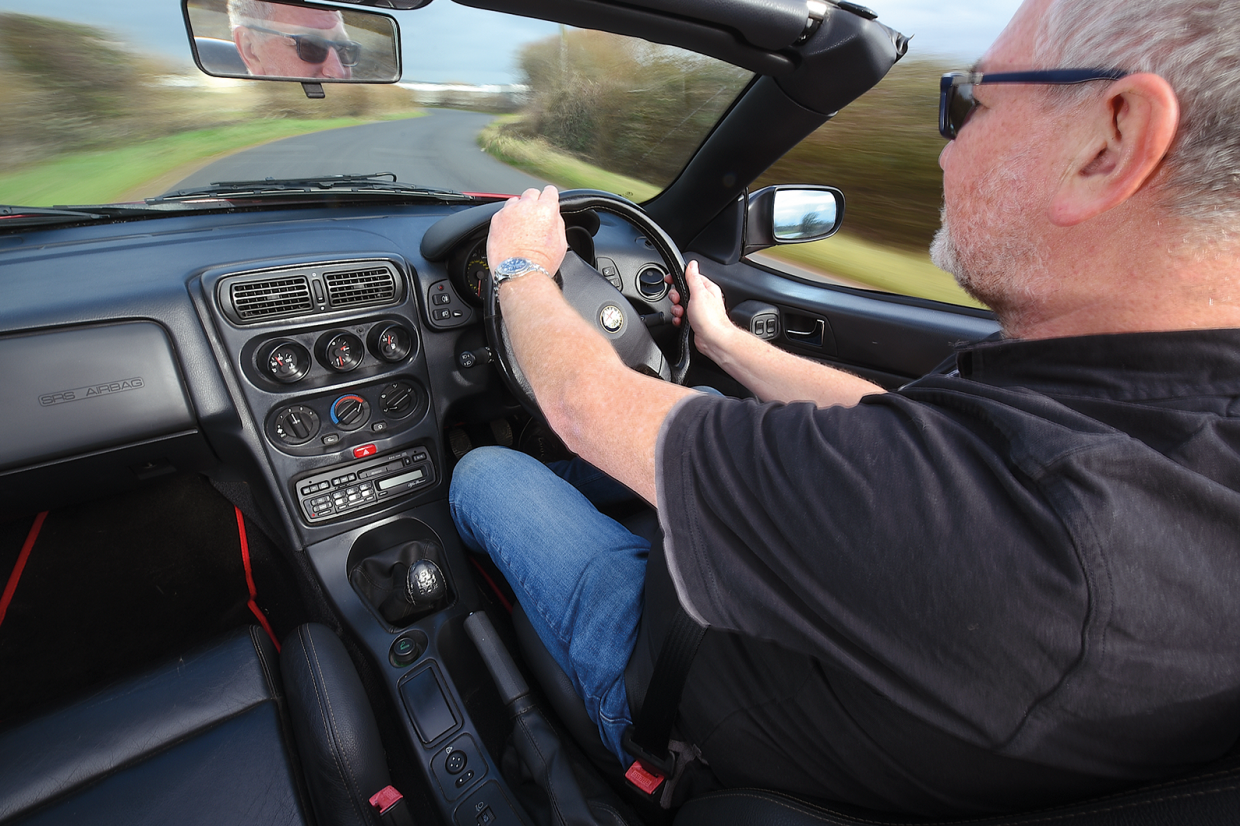
Kevin Hanley bought his low-mileage Phase 1 in 2014 from one-family ownership: "The service history was sketchy but it had only done 47,000 miles as a weekend toy. It's rare to find one with original features such as the retractable aerial, correct Pininfarina badges and complete undertray.
"It had gravel rash on the bonnet and front wings, and car-park dings in the doors: they are very vulnerable. I did the cambelt, tensioner and water pump immediately, then had the front end and doors resprayed. I added the front strut-brace to help keep the shell stiff.
"I love the styling, the cut line and shoulder line: it harks back to the TR7. It's a lovely shape with the hood down. It's also a quiet, efficient cruiser. I use the Spider sparingly – I have a 3.2 GTV for everyday use, which is thirsty but pulls like a train."
Also consider
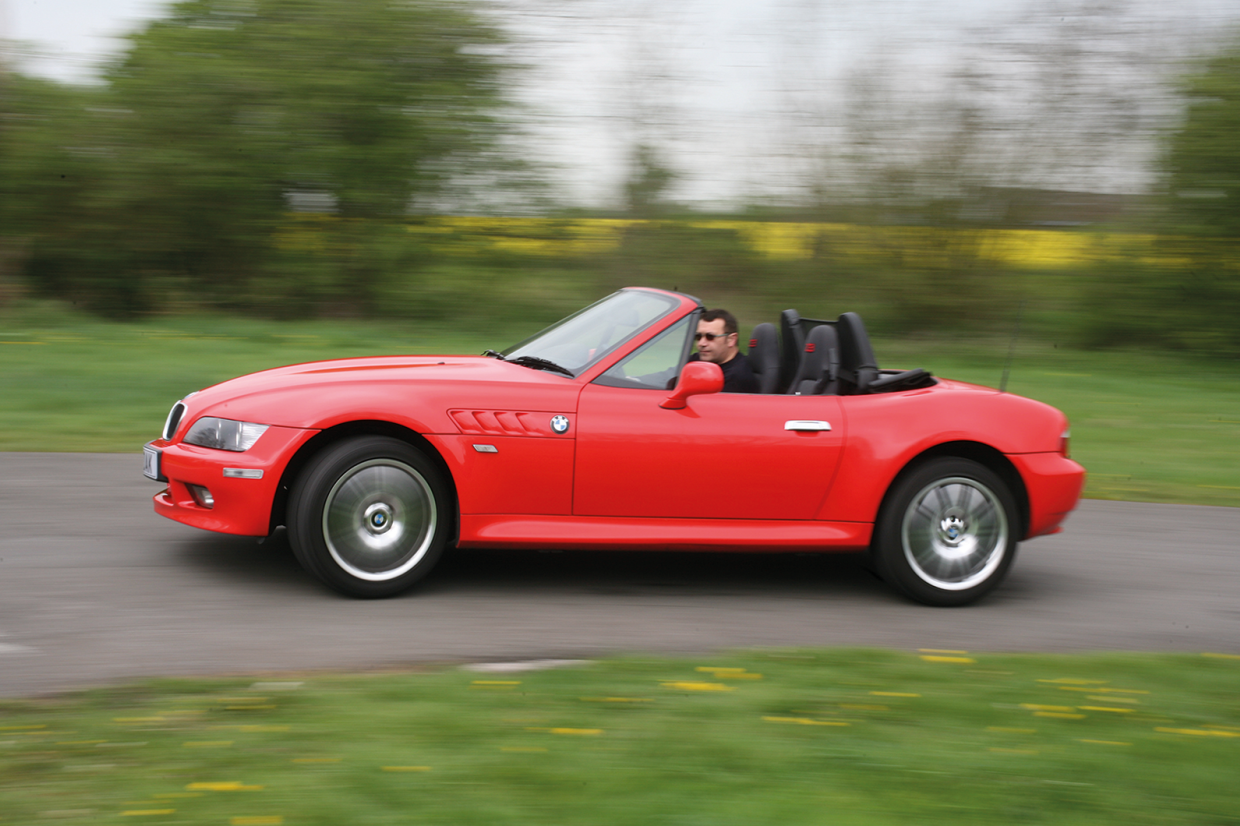
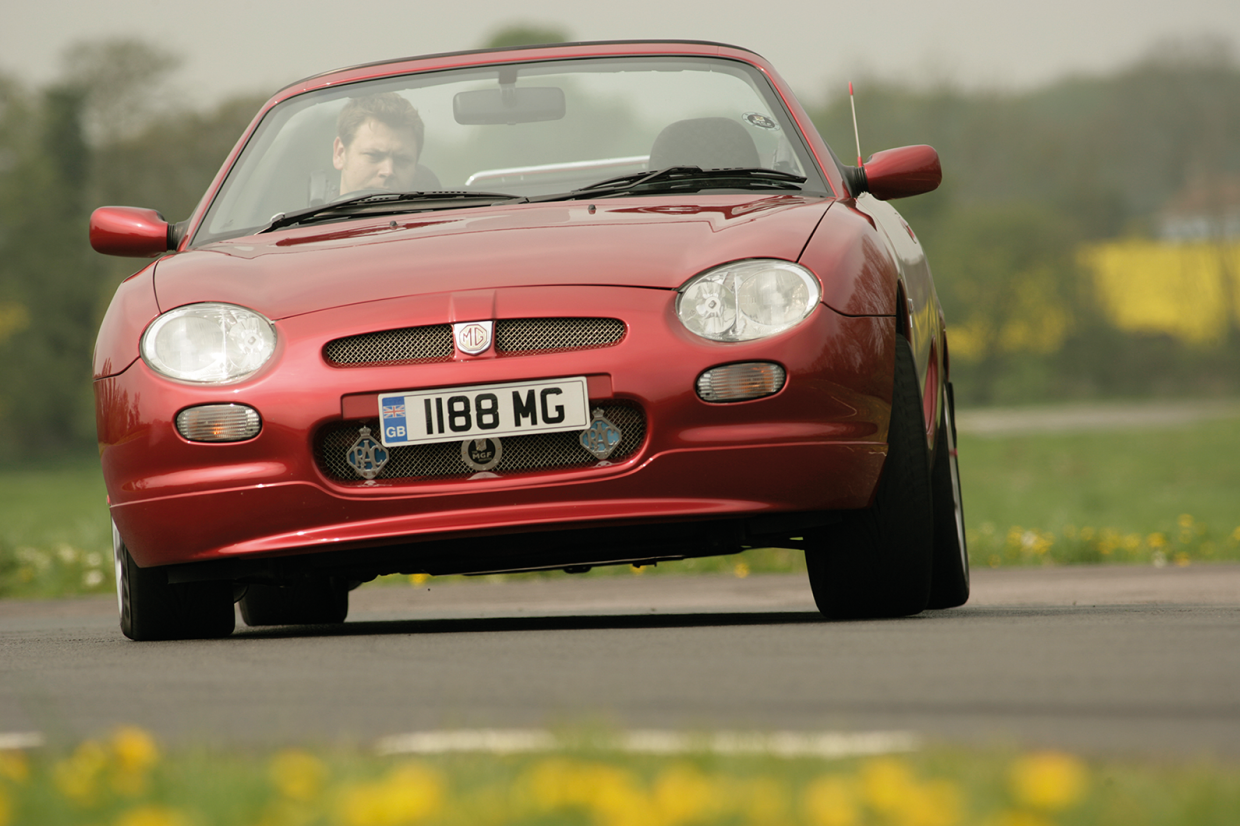
BMW Z3 (left) and MGF/TF are alternative buys
BMW Z3
A modern MGB: rear-drive and reliable, with multiple engine options from 1.9 to 3.0. Great, but many have high mileage and costly issues.
Sold 1996-2002 • Built 263,170 • Price now £1500-7500
MGF/TF
MG's bold and successful bid to make mid-engined sports cars practical and affordable. Rust and neglect have ruined many examples.
Sold 1995-2005 • Built116,518 • Price now £500-4500
Alfa Romeo Spider (916): the Classic & Sports Car verdict
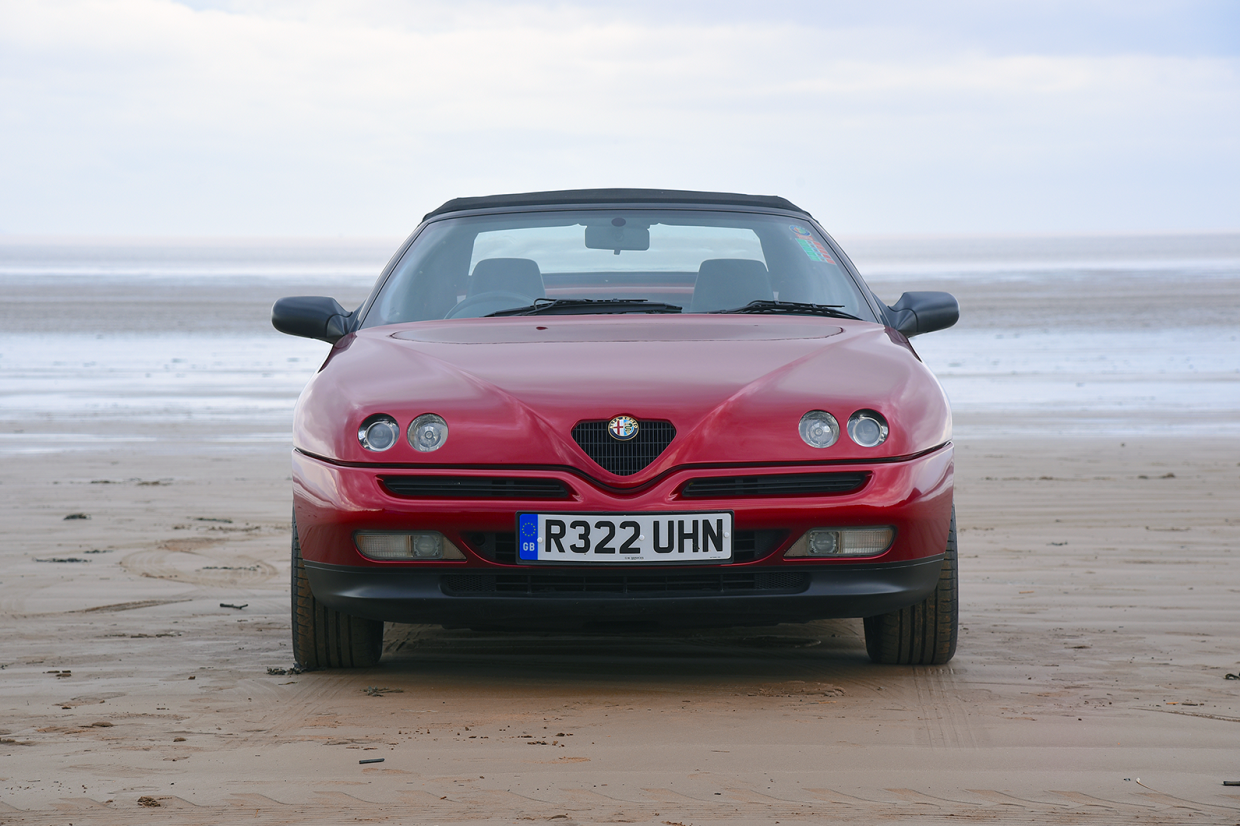
The 916 Spider is definitely on the rise at the minute, making it a sound choice for some fun summer motoring – provided you look out for a good example, probably with low mileage, that has clearly been cherished.
Neglected ones are unlikely to be a worthwhile investment for a long time to come, if ever. If you want a V6 version, though, there's not much choice, and some vendors are hyping rare specs, too.
FOR
Most have been well maintained and there are some great low-mileage cars. It's sweet handling and sounding, with good clubs and specialists
AGAINST
Roof leaks and missed services take an Alfa beyond economic recall, while some non-service parts are also now scarce
Alfa Romeo Spider (916) specifications
- Sold/number built 1995-2004/c39,000
- Construction steel monocoque with plastic bonnet and bumpers
- Engine iron-block, alloy-head, twin-overhead-cam 16v Twin Spark 1970cc 'four', or 12/24v 2959/3179cc V6, with VVT and Bosch Motronic injection (JTS single-spark with direct injection)
- Max power 150bhp @ 6200rpm to 236bhp @ 6200rpm
- Max torque 137lb ft @ 4000rpm to 213lb ft @ 4800rpm
- Transmission five/six-speed manual, FWD
- Suspension: front MacPherson struts, lower wishbones, anti-roll bar rear coil springs, multi-link
- Steering power-assisted rack and pinion
- Brakes servo-assisted vented front, solid rear discs
- Length 14ft 7/10 in (4285mm)
- Width 5ft 10in (1780mm)
- Height 4ft 3 7/10in (1315mm)
- Wheelbase 8ft 4in (2540mm)
- Weight 2982-3241lb (1354-1470kg)
- 0-60mph 9.4-6.5 secs
- Top speed 122-150mph
- Mpg 14-40
- Price new £20,110-26,340 (2.0-3.0, 1996)
READ MORE
All Classic & Sports Car buyer's guides
Champagne classics on a lemonade budget
Starter classics: 14 great cars for a first-timer
20 appreciating classics and what you should pay for them
Malcolm McKay
Malcolm McKay is a regular contributor to Classic & Sports Car
Source: https://www.classicandsportscar.com/features/buyers-guide-alfa-romeo-spider-916

0 komentar:
Posting Komentar